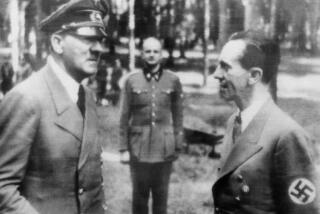Marco Polo, Liar?
Here are some things Marco Polo is said to have brought back from China that he certainly didn’t.
Noodles: Marco’s only comment about them is that in the region of Peking, people make wheat into “lasagna and other pasta foods” instead of bread. Marco, and everybody else in Italy, already knew about lasagna.
Ice cream: Chinese emperors added ice to drinks, as did Near Eastern rulers, but they didn’t know how to freeze desserts.
Tamarind: Marco remarks that tamarind is used as an emetic in India, but he doesn’t bother to explain the word tamarind. Like lasagna, it was already well known in Italy.
He never claimed to have brought back gunpowder or paper, either (though as a merchant, he was fascinated by the idea of paper currency); all he claimed to have brought from China was money. The question is whether he made that money in China or in the Near East. Did he actually reach the court of the Great Khan, or was he just retailing a lot of stories he’d heard in Persia, which was itself under Mongolian rule at the time?
We have to remember that Marco didn’t exactly write a book. A couple of years after returning to Venice he spent a while in Genoa as a prisoner of war. A hack writer and fellow-prisoner named Rustichello of Pisa wrote the book “Le Divisement dou Monde,” based on Marco’s stories with some added romantic literary flourishes.
Between Polo’s fallible memory, Rustichello’s embellishments and the various languages the information had to pass through (Rustichello wrote in Provencal French, rather than Italian, because Provencal was the accepted language for romance and adventure writing in the 13th Century), it’s not surprising that historians have long scratched their heads about a lot of what appears in the book.
Still, there’s no getting around the fact that Marco often spelled Chinese place names as they were pronounced by Arabs and Persians. Cacanfu, Chemeinfu and Quengianfu are a few that follow the Persian, rather than the Chinese, pronunciation (Hejienlu, Kaipingfu and Xi’anfu). Marco’s Zaiton comes from the Arabic name of Quanzhou (Arab merchants named it Zaitun, their word for “olive”).
Marco used the name Ciorcia for the Jurchens, a Manchurian people who once ruled China. The Persians called them the Jurji, but the Chinese called them the Nuchen. Another barbarian people were the Jinchi, whose name means “gold teeth” in Chinese. Marco, however, called them the Cardandan, from Persian zar-dandan, “gold teeth.”
Marco called South China Manzi, as the Persians did; to the Mongols it was Nangiatai. The Chinese Emperor’s title was Tianzi, meaning “son of heaven,” but Marco called him Facfur, a word of Iranian origin meaning “son of God.”
Could it be that Marco, who expressed tolerance of paganism but hatred of Muslims throughout his book, traveled around China in a party of Persians? Or was he Marco the Liar?
More to Read
Sign up for our Book Club newsletter
Get the latest news, events and more from the Los Angeles Times Book Club, and help us get L.A. reading and talking.
You may occasionally receive promotional content from the Los Angeles Times.





